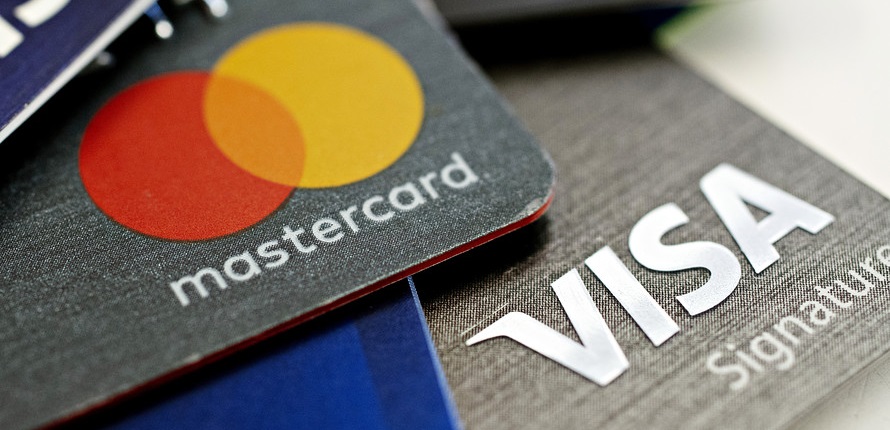
Visa and Mastercard reach settlement on 20-year legal fight with merchants, agreeing to allow stores to reject some credit cards, according to Wall Street Journal.
Premium credit-card users are in for a big surprise: Their JPMorgan Chase Sapphire Reserve, and many other rewards cards, could soon be rejected by merchants.
A settlement between Visa, Mastercard, and merchants over a 20-year legal battle is crossing for the first time a red line for the credit-card industry by breaking the networks’ rule that forces a store that accepts one Visa credit card to accept all Visa credit cards. The deal was announced Monday, confirming an earlier report in The Wall Street Journal.
The lawsuit contends that Visa and Mastercard’s honor-all-cards rule violates antitrust laws because it requires merchants who accept regular cards with average or lower swipe fees to also accept rewards cards and commercial cards, which can have swipe fees as high as 4% or more. In response, the Journal reported, the settlement would classify cards as credit cards with no rewards program, rewards cards and commercial cards, and let retailers choose which categories to accept.
National Retail Federation Chief Administrative Officer and General Counsel Stephanie Martz said the provision is meaningless because 85% of credit cards issued today are rewards cards and retailers have no choice but to accept them. If banks switched cards among categories, retailers could effectively be required to continue to honor all cards.
The potential deal with retailers would lower fees for merchants, potentially lowering prices but threatening prized consumer rewards.
The deal, which is still subject to court approval, could mean big changes for businesses and consumers. In 2024, over a third of all purchases were made with credit cards and those who use them might face new surcharges when they swipe or have to use another form of payment if businesses don’t accept their card.
And because credit card companies finance credit card rewards, lower interchange fees may mean fewer perks. “If you were to lower interchange fees, you probably have to also lower rewards,” Joanna Stavins, principal economist and policy advisor at the Federal Reserve Bank of Boston told CNN last month. That’s because “rewards are financed by interchange fees.”
The two credit card giants have been entangled in a lawsuit brought by retailers for the last 20 years that alleged the companies have fixed the price of interchange fees — a large portion of the fees merchants pay when a customer makes a purchase with a credit card. The companies were close to reaching a settlement last year, but U.S. District Judge Margo K. Brodie rejected the $30 billion proposal.
The proposal announced this morning would see the two companies bring down interchange fees by 0.1% over the next five years, give merchants the choice to add surcharges when customers pay with credit cards as well as the option to refuse premium cards, which often charge substantially higher fees.
“After more than 20 years of litigation, Visa and Mastercard have reached a proposed settlement with U.S. merchants of all sizes that would provide meaningful relief, more flexibility and options to control how they accept payments from their customers,” Visa told CNN.
Mastercard said that “smaller merchants will gain in this settlement – more acceptance choices, reduced costs and simplified rules.”
The proposal from Visa and Mastercard specifically states that the deal is not an admission of wrongdoing.
The National Retail Federation, a powerful trade group representing retailers, called the proposal “window dressing.” A press release issued in response to reports of the proposal said the reduction in interchange fees doesn’t go far enough to address the rise in interchange fees, which they say average around 2.35%.
“This is the third attempt to settle this case and the card industry either just doesn’t get it or just doesn’t care,” NRF Chief Administrative Officer and General Counsel Stephanie Martz said. “Once again, this proposal is all window dressing and no substance. The reduction in swipe fees doesn’t begin to go far enough, and the change in the honor-all-cards rule would accomplish nothing. If the courts can’t fix this, it’s time for Congress to take action.”
According to a report by the Wall Street Journal, swipe fees would be reduced by about one-tenth of one percentage point for “several” years.
Martz said the reduction is inadequate because it is a small fraction of the 2.35% average swipe fee charged to merchants in 2024 and equivalent to rolling back fees by only about one year — swipe fees averaged 2.26% in 2023. Swipe fee rates have grown by three times as much since 2010, when they averaged 2.02%.
The European Union capped credit card interchange fees at 0.3% in 2015.
Sources familiar with the matter told CNN that they believe the proposal from Visa and Mastercard, which has accumulated widespread opposition from retailers, is unlikely to be enacted.
“It’s remarkable that anyone could think a temporary 10 basis point reduction — barely more than last year’s increase — is fair compensation for allowing a credit card duopoly to maintain their pricing cartel for eight more years,” said the National Restaurant Federation.
____________
The lawsuit was filed by merchants in 2005 and the current proposal is the third attempt at a settlement. The first settlement was overturned in 2016 by the 2nd U.S. Circuit Court of Appeals after NRF and other merchant groups said it would do nothing to change Visa and Mastercard’s practice of centrally setting swipe fees. In 2024, a federal judge rejected a proposed settlement after NRF said in a letter that it still failed to end the fee-setting practice and failed to reverse the honor-all-cards rule.
Banking 4.0 – „how was the experience for you”
„To be honest I think that Sinaia, your conference, is much better then Davos.”
Many more interesting quotes in the video below: